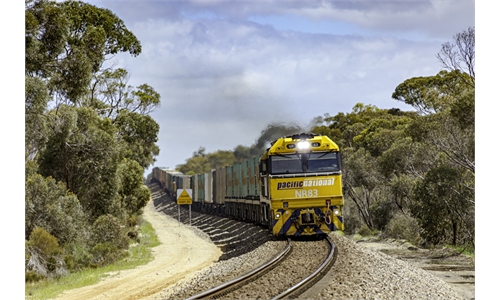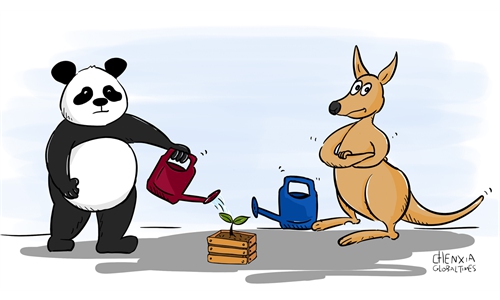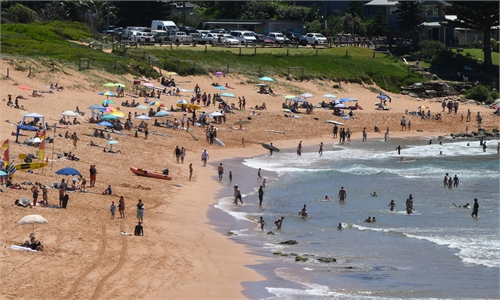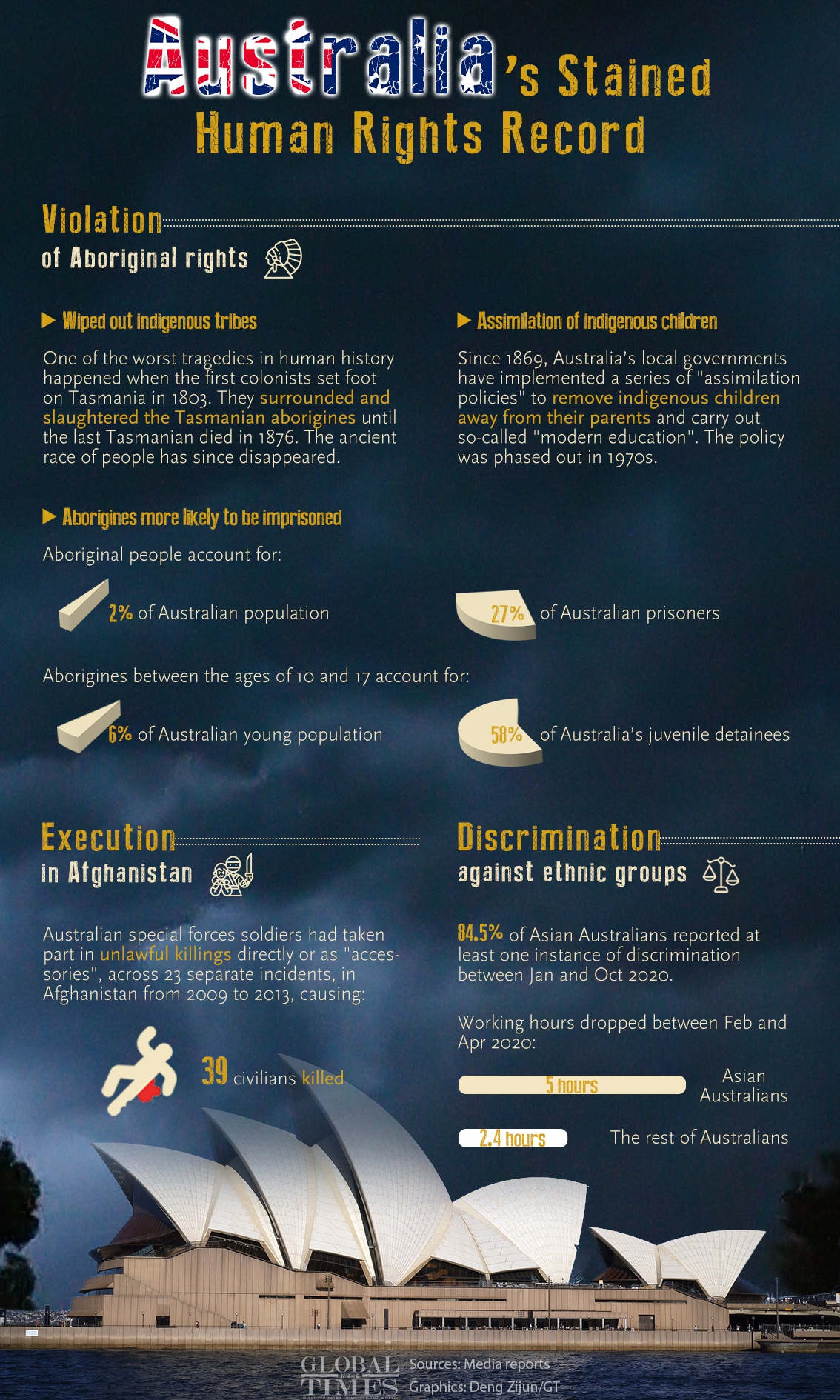
Australia's Stained Human Rights Record infographic:Deng Zijun/GT
Together with some countries and a UN body on refugee, China expressed grave concern over Australia's severe violations of human rights, including its soldiers' killing of innocent civilians in overseas military actions, detaining immigrants, refugees and asylum seekers in offshore detention centers, and its domestic systematic race discrimination on Thursday at the 47th session of the United Nations Human Rights Council.
"It is with regret to see Australia not take China's suggestion… China urges Australia to take the universal periodic review as an opportunity to face up to and repent its own severe problems on human rights, stop various violations of human rights and take concrete measures to protect human rights," a Chinese representative said on Thursday.
Other countries and organizations also expressed similar concerns including Russia and Syria and the UN Refugee Agency.
Every five years each country's record and policies on human rights are put under the spotlight as part of a UN process known as the universal periodic review (UPR). Australia had its UPR on Thursday.
The Chinese representative pointed out that Australia's severe violations of human rights include its soldiers killing innocent civilians in overseas military actions and committing severe war crimes.
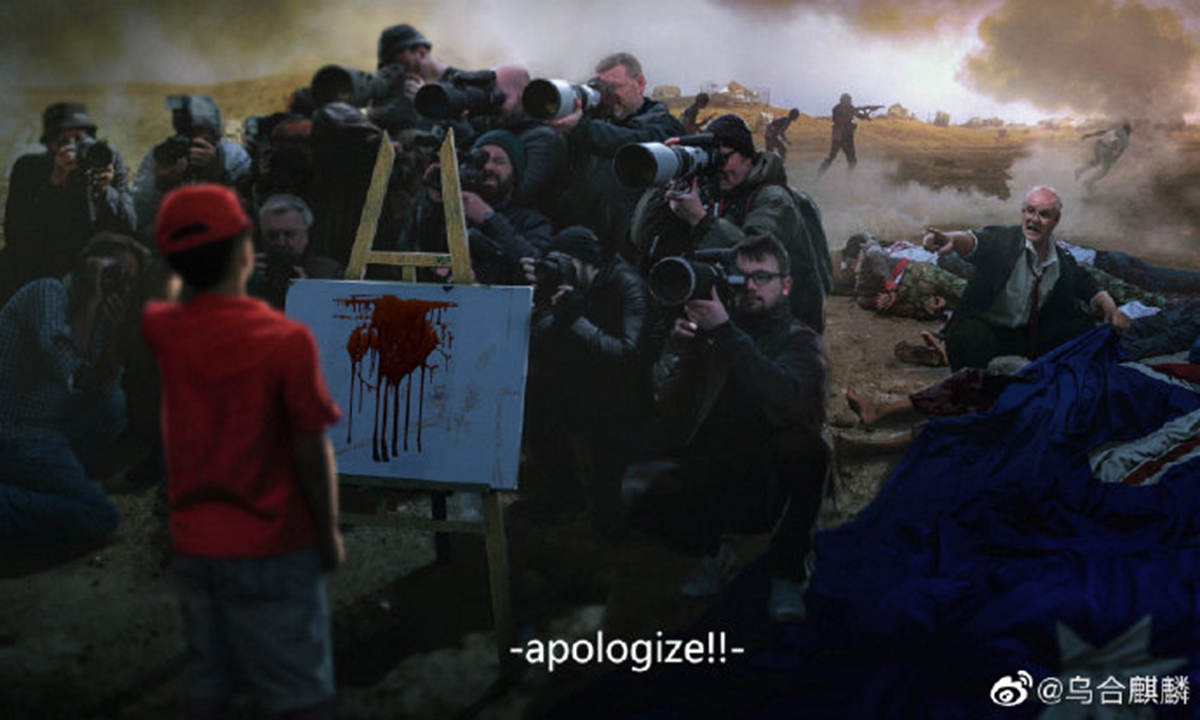
Wuheqilin's latest cartoon Photo: Wuheqilin's official Sina Weibo account
Australian special forces allegedly killed 39 Afghan civilians unlawfully in an environment where "blood lust" and "competition killings" were reportedly a norm, according to a long-awaited official report unveiled in November 2020.
Aside from the war crimes, Australia was criticized for setting up detention centers to forcibly detain immigrants, refugees and asylum seekers for a long time.
Representatives from other countries and non-governmental organizations also criticized Australia and called an end to the offshore processing of asylum seekers arriving by sea and to prohibit detaining children in immigration detention centers at the Thursday meeting.
Calls from 30 countries for Australia to raise the minimum age of criminal responsibility from 10 to at least 14 - amid concerns about the over-incarceration of Indigenous children - have simply been "noted," with the government pointing to the role of state and territory governments in legislating any such change, The Guardian reported.
But Australia rejected all these proposals.
Australia's rejection has brought dissatisfaction to NGOs in Western countries. "Australia paints a picture of itself for the global stage that doesn't match the reality at home," said Sophie McNeill, Australia researcher at Human Rights Watch. "Government claims that Australia is committed to the human rights of refugees and asylum seekers are absurd so long as harmful offshore detention policies continue and people remain for years in immigration detention."
Some NGOs also criticized Australia for its poor record on Indigenous communities' human rights and treatment. The Human Rights Measurement Initiative (HRMI) revealed in an article on July 2 that Indigenous Australians had most of their human rights at risk. Seventy-one percent of experts surveyed believe Indigenous people are at risk of having their freedom from arbitrary arrest violated.
The Chinese representative pointed out that Australia also has long-term and systematic discrimination against Africans, Asians and other minorities and Muslims and indigenous people. It also has serious hate crimes.
However, instead of reflecting on its own problems on human rights, out of political purpose, Australia has kept spreading disinformation and uses human rights as an excuse to interfere in other countries' international affairs, the Chinese representative said.
Closely following the US and a small group of Western countries, Australia has joined the anti-China campaign to smear China by hyping human rights topics, especially on China's Xinjiang Uygur Autonomous Region.
For example, in a joint statement on March 23, Australian Foreign Minister Marise Payne and New Zealand Foreign Minister Nanaia Mahuta called on China to grant meaningful and unfettered access to Xinjiang for United Nations experts, and other independent observers.
Chinese Foreign Ministry spokesperson Hua Chunying said that the door to Xinjiang is always open. We welcome any unbiased foreigners to Xinjiang, but firmly oppose any so-called "investigation" and "accountability" with presumption of guilt, and stand against anyone using this for political maneuver to pressure China.
"Speaking of 'accountability,' I wonder how Australia is doing with those investigations into their soldiers' grave crimes in Afghanistan that were exposed not long ago? Have they held the perpetrators accountable and punished them to do justice to the innocent victims? Will Five Eyes countries including the US and the UK, and the EU consider sanctions on Australia?" Hua asked.
The spokesperson added that "Besides, in Australia, there was the infamous White Australia Policy, under which genocide was committed against aboriginal people and 100,000 aboriginal children were forcibly taken away from their families. Did Australia hold accountable those who caused pain to the Stolen Generation?"

